News
Need of the hour: Special status for teachers
PARVATHY JAYAKRISHNAN examines the many valid reasons why teachers need to be given the respect, remuneration, safety and security they deserve
Published
7 years agoon
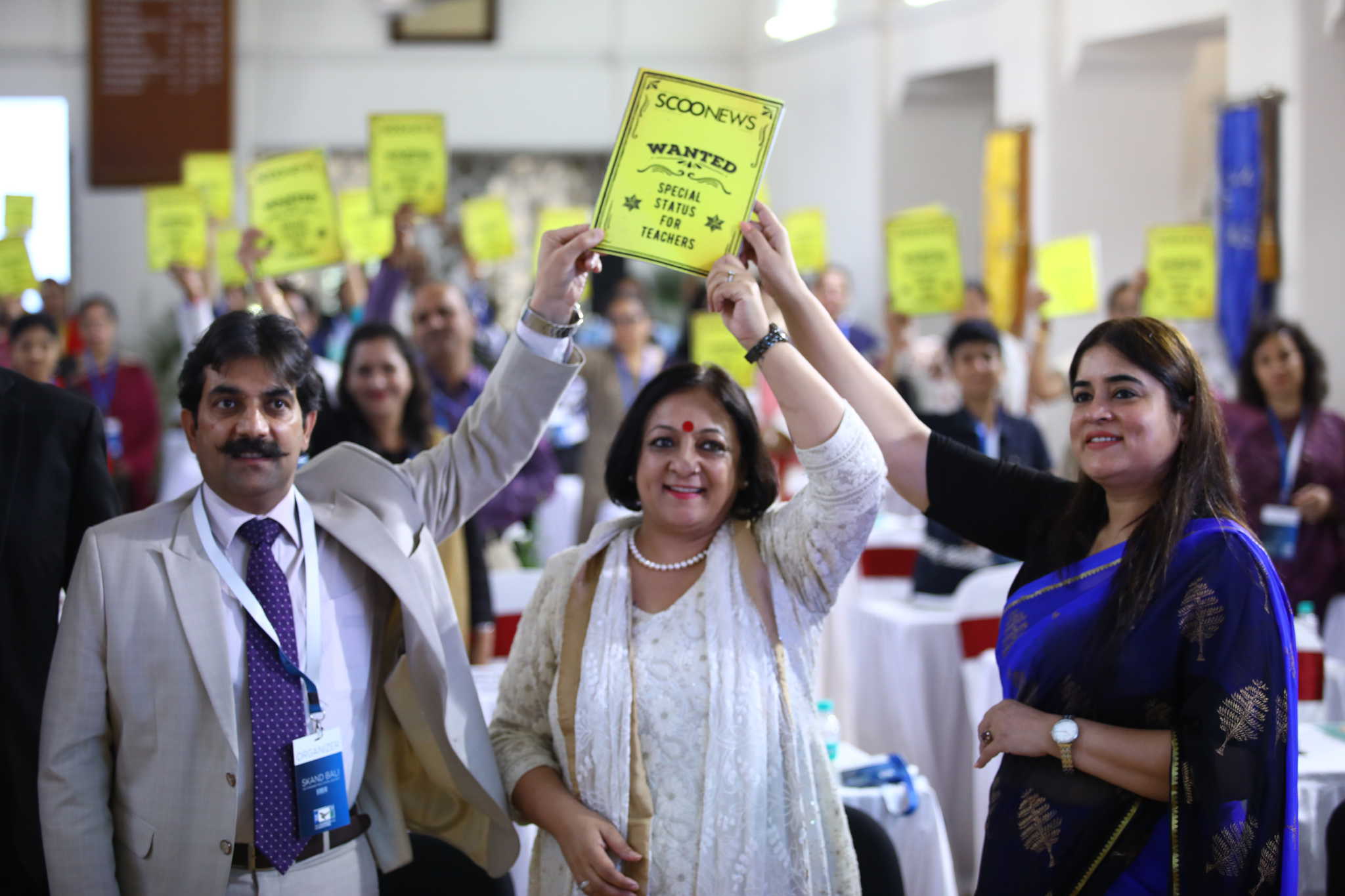
A teacher fills in as a parent in the formative years of a child, she/he guides and corrects a child when he make mistakes, encourages students to reach for the stars and applauds their achievements. All packed in one, a teacher’s role is not an easy one. A teacher sometimes takes on the role of a parent, a friend, a confidant and much more. A student spends so many years interacting with his/her teachers on a daily basis and the role of a teacher in a student’s life cannot be replaced by any other professional in society. And clearly, it is the teachers who are responsible for building good citizens. Hence, good teachers are truly what a country needs to move forward. The unfortunate reality is, despite all these responsibilities and roles resting on a country’s teachers, they not given the respect and special status they truly deserve.
An army man in uniform or a doctor is well-respected in our society. In some states, patients remove their footwear before entering a doctor’s chamber as a mark of respect – the kind of respect that you give God while entering a place of worship. We smile and sometimes even bow our heads as a mark of respect when we see an army man in uniform. However, the work and efforts of teachers are more often than not ignored in our society. Is it a kind of conditioning that we are brought up with?
We are very proud of our sacred guru-shishya parampara, which is a tradition of spiritual relationship and mentoring where learning is transmitted from a guru "teacher" to a shishya "disciple". Such knowledge, whether it be Vedic, agamic, architectural, musical or spiritual, is imparted through the developing relationship between the guru and the disciple. We talk ever so proudly about our Gurukul system of learning where the students live near the guru or in the same house as the guru and learn lessons of life from the guru. The guru does this without accepting any fees from the students because the relationship between a teacher and student is considered sacred.
Sonal Ahuja, Learning evangelist, founder, House of Learning explains that for thousands of years, the Indian subcontinent revered its teachers to the highest level. “Indian tradition dictated that teachers must be treated with respect that paralleled kings. The Mahabharata famously depicted the story of Eklavya, a gifted archer who cut off this thumb as Guru Dakshina to show his unconditional gratitude to his Guru, Drona.”
So, we cannot completely blame our conditioning because our traditions and values teach us to respect “the teacher” the same way that you respect God. Then where did we go wrong and why aren’t teachers today given the kind of respect they deserve?
Urvashi Warman, Principal, The Palace School, The City Palace, Jaipur believes that the government needs to step in and set high parameters for teacher selection. She says, “When we have such stringent standards set at the entry level for doctors and engineers, why are we so lax in raising the bar at the entry level to become a teacher … a teacher who actually helps to give good doctors and engineers to the society? The government should also set decent rates for monthly emoluments so the teacher is not forced to indulge in additional commercial activities to make two ends meet. This by far is diluting not only the standard of education being imparted but is also lowering the stature of a teacher as he gets relegated to the level of a commercial tutor rather than getting elevated to the pedestal of an Acharya or Guru.”
Shalini Dahiya, educator, Modern School – Barakhamba Road, New Delhi explains why teaching is underrated today.
“Occupational status depends on the public valuing of the competence, role and overall contribution of a particular occupation to individual and social welfare.
Teachers are struggling for a special status as firstly they are not considered as a temple of knowledge or a good character building instrument, with the surge of social media and too much of information available on the internet.”
Teachers in other countries
Japan
Japan is one of the countries in the world where the teaching profession is respected and valued. Here’s how they make sure that teachers are given the special status they deserve…
Teachers in Japan have traditionally been paid better than other civil servants. Japan’s average teacher salary for a lower secondary school teacher after 15 years of service is US$47,561, as compared to the OECD (Organisation for Economic Co-operation and Development) average of US$40,569. Following WWII, over concerns about teacher shortages, the Prime Minister decreed that teachers would be paid 30 percent more than other civil servants. Although this gap has decreased over the last 50 years, by law teachers remain relatively highly paid among civil servants. Also, teacher salaries do not vary much across the country because teachers are paid from both the national government and the prefecture government so they are relatively consistent regardless of an area’s income levels or property values.
In Japan, teachers are addressed with the honorific sensei, a term also used when addressing a doctor or member of Parliament. Teachers are held in such high regard that they are often contacted before parents by the police if a student is in trouble with the law.
The teaching profession in Japan is also highly selective which ensures that only the best and most committed teachers enter the profession. Those who do make the cut only do so after a rigorous set of school board exams and evaluations and teachers must hold a degree from an institution of higher education.
Finland
The Finland education system regularly tops the international Pisa performance rankings and the teachers need to take the credit for it. Finland’s teachers are different from the rest of the world because they believe that extensive training is the basis for giving teachers the autonomy to work the way they want. The result is a highly prized profession and good education system. This has even led to educational tourists coming in to learn the Finnish experience. The high-level training is the basis for giving young teachers a great deal of autonomy to choose what methods they use in the classroom – in contrast to most countries where teaching feels like a profession that oscillates between administration and giving tests to students. In Finland, teachers are largely free from external requirements such as inspection, standardised testing and government control – school inspections were scrapped in the 1990s. In Finland, teachers are given high-quality education so that they know how to use the freedom they are given in the classroom and they learn to solve problems in a research-based way.
China
The 2013 Varkey Foundation Global teacher status index report revealed that it is only in China that people think of teachers are being most closely compared to doctors. In the US, Brazil, France and Turkey, people thought teachers were most similar to librarians and in New Zealand people think the job of teaching is most similar to nursing. The report found that teachers in China have the highest level of public respect. Most foreign English teachers in China receive benefits like free or reimbursed airfare to and from their home country, and/or free furnished housing. Many teachers also receive health insurance and paid vacation. It is one of the few countries where parents were most likely to encourage their kids to become teachers.
Respect and remuneration
One important dimension of how an occupation is regarded, and which is inextricably linked to standing or social status, is pay. An individual’s standing in a culture depends on how much they are paid in absolute or relative terms.
The 7th Pay Commission, launched in September 2015 ensured that the teachers in primary schools, secondary and higher secondary schools, colleges and universities get a hiked net salary of 16 per cent. However, the yearly increment of 3 percent did not change.
Dr. Dheeraj Mehrotra, National Teacher Awardee 2005 & Academic Evangelist, Next Education India believes that “The imbalance from the teaching profession, highlights a great divide with narration of unethical practices of low salary and refund of said amount via account transfer as reverse payment. There must be a check on equal pay for all grades and at all levels.”
It is important that teachers are provided with a substantial yearly increment to prevent attrition and keep them motivated. Also, there is a huge gap between the salaries of a primary school teacher and a high school teacher. This gap needs to be addressed as primary school teachers are equally important and this has to be shown by ensuring their salaries are on par with the rest.
Urvashi Warman, Principal, The Palace School, The City Palace, Jaipur avers, “The teacher is by far a silent sentinel of a country's future and if this sentinel is not compensated adequately in terms of financial and social security, the country's future is sure to be doomed. This doom is inevitable because the poorly compensated teacher, who is a role model for his students,is sure to indulge in acts which totally demean his stature and thus sets a poor example for his students to emulate.”
According to Dr Jagpreet Singh, Headmaster, The Punjab Public School, Nabha, “The primary reason we all work is for money – so teachers should get their due financial recognition which will definitely bring young, intellectual people into this noble profession. Proper management of funds by the school authorities should be done and teachers should be given regular incentives and bonuses on the basis of their performance. ”
Measures to ensure teachers’ financial stability
Teaching is a profession which requires going beyond the call of duty to deliver great results. Financial stability is a must for teachers and the government must bring in special allowances and privileges for teachers so that they can sustain themselves well without having to find secondary jobs to make ends meet. The remuneration you receive is also a sign of your value to the school and an underpaid teacher will always feel unimportant.
Teachers can be granted allowances based on the number of years of service or excellence in their work. It is worth a thought whether the salaries of teachers need to be taxed at all or even if they are taxed, there needs to be a separate slab which will ensure minimal taxation.
Every school can also ensure that a teacher’s child learns for free or is given a subsidized fee.
Lavita Kacker, Head of Department- Social Sciences, Sacred Heart School, Kalyan suggests that “Financial stability measures for teachers may include provision of housing allowances, reduction in taxation on income, attractive investment schemes, medical reimbursement, concession on public transport and better pension facilities.”
Shraddha Bhatnagar, Headmistress (Head of Cambridge Section), Seedling World School, Udaipur wishes that the government checks the imbalance between salaries of teachers in private and government-run schools.
Proper remuneration is important to boost a teacher’s self-confidence and make her/him feel secure in the job. Yearly increments and bonuses are also required for the same reason. A job which does not do that will, at some point, end up being taxing.
“The pay commissions are restricted to government aided, affiliated and government run schools. There is no start up point for early childhood sector and private schools where teachers are exploited with low pay scales. A respectful minimum pay scale should be mandatory for schools to pay to their teachers. There should be levels of training with specialisations in teaching as in the medical field and accordingly a pay scale armed with good gratuity, pension, and life covers for financial stability,” says Smriti Agarwal, Sr. Headmistress, Podar Jumbo Kids Powai, Mumbai.
Kavitha Vyas, Director, Crystal Kids Pre-School, Vadodara mentions that job security is absolutely necessary to ensure a teacher’s financial stability. They can be trained further for higher grades and regular promotions to improve their pay scale. More social security and medical benefits for their family are also required, she maintains.
Safety for teachers in schools
It is not uncommon today to hear the news of a teacher being stabbed by a student or attacked by an adult or a mob in the school premises. So tricky is the state of affairs today that teachers are often scared of even punishing a child for doing wrong for fear of his/her own safety. Safety of students in schools is always talked about as a priority that is pursued by parents. However, a school should also provide safety and support to its teachers so that they can function normally and without fear. Merely providing compensation to the family of the deceased is not a solution to the problem. Teachers need to feel safe to do their job faithfully and without fear. School authorities need to ensure this happens. Parents also need to teach their children the importance of teachers in their lives.
According to Dr Jagpreet Singh, Headmaster, The Punjab Public School, Nabha, “A school should be as safe for a teacher as it is for a student. Rather than enforcing restrictive discipline among children, the parents should take equal responsibility of bringing up their children and instil strong moral values and ethics.”
Speaking about the need for an emergency response system,Yasin Khatri, Sacred Heart School, Kalyan explains that teachers must be trained to handle any crisis that takes place around them. The feasibility of the emergency response system must be checked through frequent mock drills at school. “Students must be sensitised and teachers should be trained to identify such cases within the classroom or around. Immediate psychological help must be provided to pupils who need it.”
Priyanka Singh, ICT Educator, The HDFC School, Gurgaon emphasises that schools should have a security check system at the entrance so that people cannot enter a school premise with weapons. She also suggests schools have a police booth in its vicinity so that help can be immediately sought in case of any mishaps.
“The Government must have good health care and on-call medical facilities in every school across the country. Metal detectors and CCTV cameras should be installed within the school. EQ and IQ evaluation of students should be conducted to identify problems amongst students. Uniform level of safety and security measures for all schools should be ensured,” says Lavita Kacker, Head of Department – Social Sciences, Sacred Heart School, Kalyan.
Suggesting that self-defence for teachers can be part of the teacher training programme, Smriti Agarwal, Sr. Headmistress, Podar Jumbo Kids Powai, Mumbai also advocates instant justice and firm law in cases where teachers are physically, emotionally or sexually harassed, so that it creates a sense of fear in any individual towards the consequences of such an act.
Urvashi Warman, Principal, The Palace School, The City Palace, Jaipur has a different opinion on how to tackle the safety issue of teachers in schools. She says, “The solution to violence in schools does not lie in turning the school or any educational institute into a fortress. The solution lies in empowering the teaching faculty with proper life skills which they need to impart to students from a very young age. When the student community is sensitised and learns how to deal with issues like rejection, failures, grief, disappointment and general strengthening of the emotional quotient, the problem of increase in violence is sure to dissipate very soon.”
What we can do to ensure teachers are respected
The role of teachers is paramount in shaping the future of the country. The government should include teachers while reforming educational policies. With the digitisation of education happening at a rapid pace, the role of teachers is also changing drastically. Today, teachers are taking on roles of being advisors, friends and disciplinarians to students rather than the conventional role of a teacher who only explains what is there in the textbook. However, the role of a teacher is indispensable in a student’s life and it is imperative that the student understands it and respects the teacher accordingly.
Suman Sood, Territory Head, Kolkata Chapter, Early Childhood Association explains the importance of giving grants to teachers so that they can better themselves. She says “Involved and passionate teachers are always wanting to do things differently so that they may enhance learning of their students. Innovative teaching is important, but it can be expensive. The US model of giving grants to teachers for enhancing their skills and using funds for buying teaching aids can be followed for our teachers. Some of the grants given may be Professional Development Grants for Teachers, Funds for Classroom Enrichment/Student Achievement, STEM Grants, and Humanities Grants.”
Shraddha Bhatnagar, Headmistress (Head of Cambridge Section), Seedling World School, Udaipur suggests, “Government can think of rewarding/awarding teachers annually for their outstanding contributions. One of these rewards can be the official use of the upaadhi ‘Guruji’ or ‘Gurudev’ with their names.”
Summary
Verbally, we talk highly of teachers, praise their work and value them. But mere lip service is not enough. We need to show it by giving them the special status they truly deserve; by showing them that they are indeed doing a selfless job in raising citizens of this nation. We can take a leaf out of the books of some of the nations who treat their teachers on par with other noble professions and provide them with special rights. We need to make our teachers feel safe, secure and wanted.
To make sure that teachers continue in the same profession, we need to ensure that they are guaranteed financial stability and substantial yearly increments. A change in the mindset of parents is also very much required. It is very common to see parents wanting to see their children become doctors or engineers; we need to encourage our children to become teachers as well as ensure that the teaching profession is on par with any other profession. To facilitate this better, the salaries in the teaching profession need to be on par with those of other professions. Let us bring back the glory of the teaching profession from the days of Dronacharya or Ved Vyas and ensure that teachers today are treated with love and respect. We need to make a strong effort for this but together, we can.
What teachers want…
“Financial security being the top priority, recognition for their selfless service in the upbringing of others’ children which goes unnoticed. Teachers posted in remote areas should get extra allowances. Quality time to spend with family will work as an incentive in improving their output. Also, monitoring through CCTVs should be focused on students’ actions rather than teachers.”
Dr Jagpreet Singh, Headmaster, The Punjab Public School, Nabha
“Matching teachers’ salary to the best salary in the market is a must. Sponsorship of teachers to visit schools across the world to learn the best practices is important. Collaboration among Indian teachers and creating a forum of teachers to share best practices is also necessary. Teacher education courses should be enhanced and the process for it should be eased.”
Mohammed Azhar, Principal, Knowledge Academy School, Chennai
“Teacher (Tr.) Title should be given to teachers and Sr. Tr. to teachers who have been into the teaching profession with a minimum of 15 years. A requisite of a Teachers’ Club in every city with provisions for teachers' welfare and community should be there. To teach is to preach; teaching is no doubt the most trusted profession in the world. Let teachers be recognised and saluted for their commitment towards enriching young minds and igniting them towards becoming prosperous nation builders of tomorrow.”
Dr Dheeraj Mehrotra, National Teacher Awardee 2005 & Academic Evangelist, Next Education India
“Funding needs to be provided for innovative teacher education, for programmes that target minority teacher recruitment, and for increased collaboration between universities and schools in preparation of teachers so that more participation and encouragement is provided to teachers coming from rural areas. Private sector teachers should also get benefits similar to the government set up. There should be provisions for continuous professional development, trips and excursions as a team building activity.”
Priyanka Singh, ICT Educator, The HDFC School, Gurgaon
“The Government of India should give teachers a professional designation and respect like those given to army personnel because the same way that the army defends the nation, teachers too defend the citizens from illiteracy, poverty, ignorance, unemployment, superstitions, mental and social evils. Their privileges could include subsidised accommodation, annual medical checkups and medical aid, standardised salaries, transport allowance, opportunities for professional development, work from home, financial incentives, better pension and retirement plans.”
Lavita Kacker, Head of Department – Social Sciences, Sacred Heart School, Kalyan.
“The government can do a lot to change this scenario and create an atmosphere of great respect for teachers throughout the nation. This can be done by reiterating through various government campaigns and highlighting achievements of exceptional teachers. Following can be some privileges that can be given to teachers:
-
Special considerations in all government-related jobs such as making passports, getting medical assistance, legal proceedings etc.
-
Teachers to get special privileges like subsidised passes in railways, airlines and bus services.
-
Subsidies on electricity and water bills.”
Shraddha Bhatnagar, Headmistress (Head of Cambridge Section), Seedling World School, Sapetiya, Udaipur
“Our government needs to attach value to teacher training and the profession with the same benefits and royal respect that the Indian Army gets. Like a civilian salutes a man in uniform when they come across him, there should be a bow to a teacher. The Government of India has not formed universities for teachers, regulations and government-accredited qualifications and national awards for teachers, which are prevalent in some countries. The most pertinent sector of early childhood education is the most neglected and sidelined. Let’s start from the roots, right from the very beginning and reap the fruits. Teachers need to be given an identity before discussing about privileges. Teaching is treated as a part time job for women. Doctors, engineers, IAS, IPS officers and defence personnel and other government officials are given the benefits of accommodation, respect and a standing in the society. The same attitude is lacking for teachers. Before special privileges, let’s make the basic amenities like resources, toilets, clean environment and good school buildings for teachers to give them a better workplace.”
Smriti Agarwal, Sr. Headmistress , Podar Jumbo Kids Powai, Mumbai
“The same way that a doctor can add his degree as a prefix to his name, a respectable term should also be given to the teacher. Also, government advertisements promote and encourage citizens to join the defence system of the country. There need to be advertisements to promote teaching as well.”
Sonal Chawla, Head of Department – Mathematics, Sacred Heart School, Kalyan
“The student-teacher ratio must be brought down. A higher ratio makes the job even tougher for teachers. Proper and timely payment of wages is a must. But the fact is that appreciation in form of financial incentive is not a very popular culture across our country. Delayed salaries and delay in implementation of the pay commission is a very common scene. Teachers, particularly in government aided schools, are compelled to do clerical jobs. This must completely stop.”
Yasin Khatri, Sacred Heart School, Kalyan

You may like
-
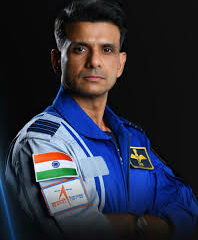

Indian Astronaut Shubhanshu Shukla to Connect with School Students Live from Space
-


Are 4-Year Degrees Dead? Nikhil Kamath and the WEF Say Lifelong Learning Is Here to Stay
-
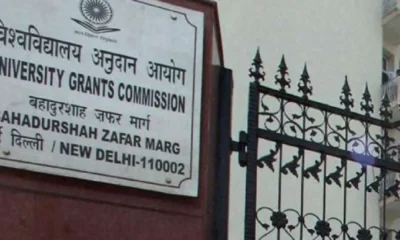

UGC Cracks Down on 89 Institutes Over Anti-Ragging Failures
-


Government Doubles Down on Coaching Centres: New Panel Signals Stronger Regulation Ahead
-
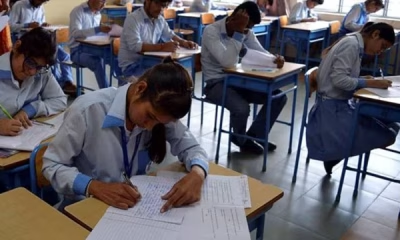

CBSE To Conduct Board Exams Twice for Class 10 from 2026
-


How to Win Back Wandering Minds: Post-Summer Edition
-

Tripura Becomes Third Indian State to Achieve Full Literacy
-
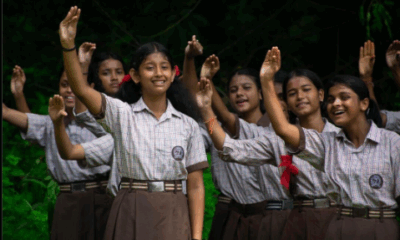

Assam Brings Sign Language to Senior Secondary Classrooms in Landmark Move
-
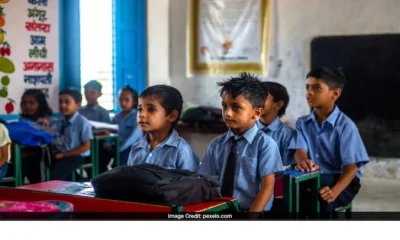

Delhi Schools to Implement Age 6 Rule for Class 1 Admissions from 2026
-
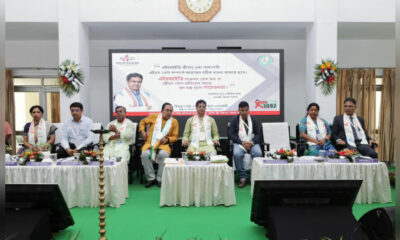

Tripura Adds Sex Education & HIV Awareness to Their Curriculum
Education
Indian Astronaut Shubhanshu Shukla to Connect with School Students Live from Space
Published
19 hours agoon
July 1, 2025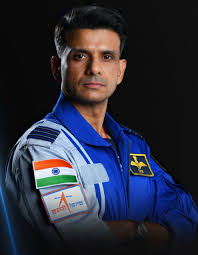
Indian astronaut Shubhanshu Shukla, currently on a 14-day scientific expedition aboard the International Space Station (ISS) as part of the Axiom-4 mission, is scheduled to interact with school students and ISRO engineers on July 4.
The communication will take place via ham radio, through a telebridge set up at the U R Rao Satellite Centre (URSC) in Bengaluru. The session is facilitated by the Amateur Radio on the International Space Station (ARISS) programme, which enables students to engage with astronauts in orbit.
The interaction is scheduled for 3:47 PM IST and will offer participating students an opportunity to ask questions directly to Shukla, who is joined on the mission by three other astronauts.
Shukla has been conducting various scientific experiments during his stay aboard the ISS. These include deploying and imaging space microalgae samples, which are being studied as a potential food source for long-duration missions. He has also participated in the Neuro Motion VR project — involving brain activity tracking through VR tasks in microgravity — and contributed to the Telemetric Health AI study, which uses biometric data and analytics to study cardiovascular and balance changes during spaceflight.
The Axiom-4 mission, organized by Axiom Space, focuses on scientific research in space with potential applications in both space exploration and Earth-based health systems.
News
Are 4-Year Degrees Dead? Nikhil Kamath and the WEF Say Lifelong Learning Is Here to Stay
Published
21 hours agoon
July 1, 2025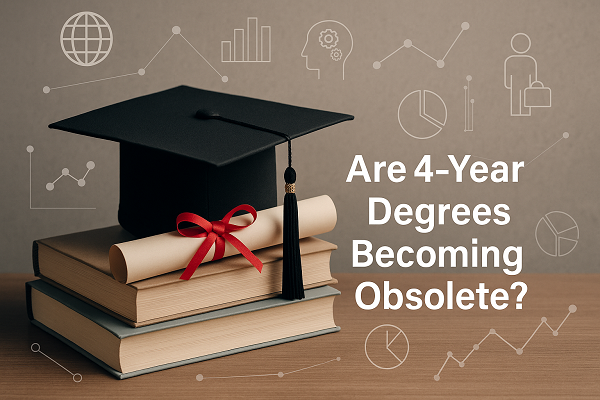
Nikhil Kamath has a stark prediction about higher education: “The days of 4-year college courses are over. Lifelong learning is the new norm, for everyone.” The Zerodha co-founder’s words landed just as the World Economic Forum’s Future of Jobs Report 2025 painted an equally urgent picture — one of seismic disruption, skill churn, and a workforce that can no longer survive on static degrees alone.
Such an interesting question: “What jobs will be relevant in 10 years?”
Personally, I think the days of 4-year college courses are over, lifelong learning is the new norm, for everyone… pic.twitter.com/sk3m7vfjR4— Nikhil Kamath (@nikhilkamathcio) June 26, 2025
The report’s findings are a wake-up call for students and professionals alike. Upskilling and reskilling have moved from corporate buzzwords to a matter of survival. Even though 75% of employers feel confident about upskilling their current teams, 38% admit they’re worried about the skill readiness of new graduates. By 2030, one in nine workers could miss out on any training at all, stuck in roles destined to disappear.
The WEF’s data is blunt: 39% of today’s core job skills will become obsolete within this decade. And the threat looms larger for countries like India, Egypt and the UAE, where nearly half of the workforce could face skill obsolescence. Already, 63% of global employers say skill gaps are stalling their operations.
Yet, the same storm of change is also throwing open new doors. An estimated 170 million new jobs will be created globally by 2030, even as 92 million roles fade away under the weight of automation and shifting trends — a net gain of around 78 million jobs. Green transitions and tech advancements are expected to swell the ranks of farmworkers, delivery drivers and software developers. Meanwhile, cashiers, clerks and other repetitive roles may become relics of the past.
The nature of these new jobs demands an entirely different mix of skills. It’s not just about coding or crunching data — the top 10 skills for 2030 range from AI and big data, cybersecurity, and technological literacy to timeless human traits like creative thinking, analytical thinking, resilience, and an open mind for lifelong learning itself. When the WEF says curiosity is now a core skill, you know the classroom is no longer a place — it’s an attitude.
Automation continues to accelerate this shift. In 2024, machines handled about 22% of work tasks; by 2030, they’ll manage 34% — while human contributions shrink proportionally. Some companies are responding by retraining their teams (77%), hiring AI-savvy talent (69%), and cutting roles that can’t evolve (41%). It’s a delicate dance of staying ahead, or falling behind.
In India’s context, the stakes are doubly high. On one hand, the country shines in inclusive hiring — 95% of Indian employers report robust DEI policies compared to the global average of 83%. They’re opening doors to women, people with disabilities, Gen Z youth, and even older workers. But India’s looming skill obsolescence means our famed engineering and MBA degrees may become only the starting point, not the destination.
So what does all this mean for those reading this now — whether you’re a student, teacher, or mid-career professional wondering what comes next? It means the idea of a single degree equalling lifelong job security is truly dead. In its place comes the unending task of staying relevant: adding a new skill here, learning a new tool there, never letting curiosity dry up. It means seeing every workplace as a classroom, every mistake as a lesson, and every new technology as a chance to expand your toolkit.
There’s no doubt this can feel intimidating — but it’s also strangely freeing. Careers are no longer single-lane highways; they’re winding, branching trails with countless on-ramps. You can pivot at 30, 40 or 60. You can reinvent yourself as often as you’re willing to learn. If Kamath’s words are a battle cry for the modern learner, the WEF’s report is the field map: adapt or risk being left behind.
The next decade belongs to the endlessly curious — the learners, the reskillers, the ones who refuse to stay still. So here’s a thought to hold onto: when the world changes this fast, there is one certainty that stays — your willingness to change with it.
Key Stats at a Glance
-
39% of today’s core job skills will be obsolete by 2030
-
63% of global employers already feel the pain of skill gaps
-
170 million jobs expected to be created by 2030
-
92 million jobs likely to be displaced
-
77% of employers plan to reskill current staff
-
69% plan to hire AI-skilled talent
-
41% may downsize roles that don’t adapt
-
India: 95% of employers report DEI policies — the highest globally
-
India, Egypt & UAE forecast the highest rates of skill obsolescence (38–48%)
-
Automation’s share of tasks will rise from 22% to 34% by 2030
References
-
Nikhil Kamath’s statement on LinkedIn and media coverage, June 2025
Education
UGC Cracks Down on 89 Institutes Over Anti-Ragging Failures
Published
2 days agoon
June 30, 2025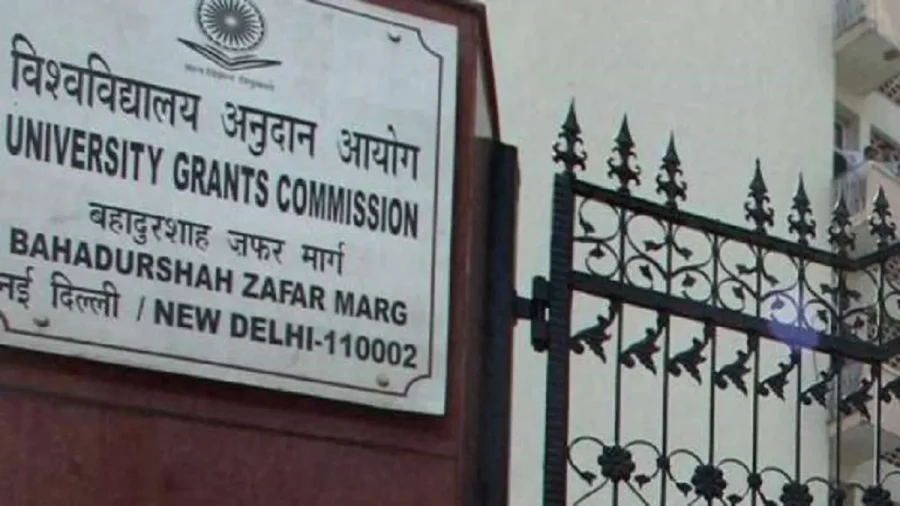
In a firm push for accountability, the University Grants Commission (UGC) has issued show-cause notices to 89 higher education institutions for failing to comply with mandatory anti-ragging regulations. The defaulters include some of India’s most prestigious institutions—17 of which are Institutes of National Importance—including IIT Bombay, IIT Kharagpur, IIT Hyderabad, and IIM Bangalore.
These institutions, despite repeated advisories, failed to submit the required anti-ragging undertakings from students and institutional compliance reports. The lapses have been termed a “significant violation of regulatory norms” by the UGC, raising serious concerns over student safety and campus climate in India’s top educational spaces.
A notice dated June 9, signed by UGC Secretary Prof. Manish R Joshi, has directed all 89 institutions to respond within 30 days by submitting comprehensive compliance reports, securing online anti-ragging affidavits from all students, and detailing both current and planned anti-ragging mechanisms.
If the institutions fail to act within the deadline, consequences may include withdrawal of UGC grants, public disclosure of non-compliance status, and potential derecognition or withdrawal of affiliation.
Among the list of defaulters are the Indian Statistical Institute, Kolkata, AIIMS Raebareli, Aligarh Muslim University, RGIPT Basar, and several National Institutes of Design. The issue becomes even more urgent in light of recent ragging-related incidents and an increasing perception of campus hostility. “Institutions must treat this as a matter of utmost urgency. Your prompt compliance will be essential in upholding institutional responsibility towards student welfare,” reads the UGC’s statement.
Ragging has no place in modern education, especially not in a country positioning itself as a global knowledge leader.
In 2025, with India’s education sector expanding in reach, recognition, and responsibility, compliance with anti-ragging norms shouldn’t require reminders. It should be a given.
As the world watches Indian institutions climb global rankings, student safety and well-being must remain central, not as compliance checkboxes, but as part of the educational culture we aspire to build.
Education
Government Doubles Down on Coaching Centres: New Panel Signals Stronger Regulation Ahead
Published
6 days agoon
June 26, 2025
In a decisive step toward reforming India’s fragmented senior secondary education system, the Ministry of Education has constituted an 11-member high-level committee to address the mushrooming of dummy schools and the unchecked influence of coaching centres. Chaired by Higher Education Secretary Vineet Joshi, the committee includes representatives from CBSE, NCERT, and faculty from IITs in Madras, Kanpur, and Trichy.
The move is seen as part of a growing policy consensus across central and state governments to reclaim the authority of schools, following recent crackdowns and reforms aimed at regulating coaching institutions and curbing the dummy school culture that sidelines holistic education.
Dummy schools — where students are officially enrolled but rarely attend — have emerged as a by-product of India’s competitive entrance exam culture. These institutions prioritise JEE, NEET, and CUET preparation through coaching classes, while students disengage from formal schooling. The CBSE’s March 2025 advisory warning that students from dummy schools could be barred from board exams marked a serious turning point in policy enforcement.
Earlier this year, the Delhi Government carried out inspections in over 600 private schools, issuing notices to at least 10 for running dummy setups. The move followed media reports and parental complaints about students being denied regular schooling in favour of coaching arrangements.
Meanwhile, the Rajasthan Cabinet approved a bill in April 2025 to regulate coaching centres operating in Kota and other education hubs. The legislation aims to curb exploitative practices, mandate mental health counsellors, and prevent coaching centres from operating without a minimum infrastructure standard—prompted by rising student suicides in the state.
Central Framework and Industry Oversight
In February 2025, the Central Government announced a new framework for coaching centres, proposing registration, transparency in fee structures, and guidelines on advertising to prevent misleading claims. Together with the current committee’s formation, these reforms indicate a systematic tightening of oversight at all levels.
The new panel’s mandate is broad. It will investigate:
- The socio-academic reasons behind the rise of dummy schools
- The misalignment between school curricula and competitive exams
- The impact of coaching on student well-being and critical thinking
- The need to promote alternate career pathways beyond engineering and medicine
- Regulations around coaching advertisements and contract practices
A National Rethink on the Purpose of Schooling
Education experts like Dr Ameeta Mulla Wattal have welcomed the initiative, calling it “a vital opportunity to restore the sanctity of school education.” The rise of coaching centres as parallel systems, she noted, has come at the cost of creativity, values, and even mental health in adolescents.
As India contemplates the future of its learners, the Ministry’s recent actions suggest a serious intent to bridge the gap between boardrooms and classrooms. Whether the new committee’s recommendations lead to tangible change remains to be seen, but the signals are clear: education in India must prepare children for life, not just for an entrance exam.
Education
CBSE To Conduct Board Exams Twice for Class 10 from 2026
Published
6 days agoon
June 26, 2025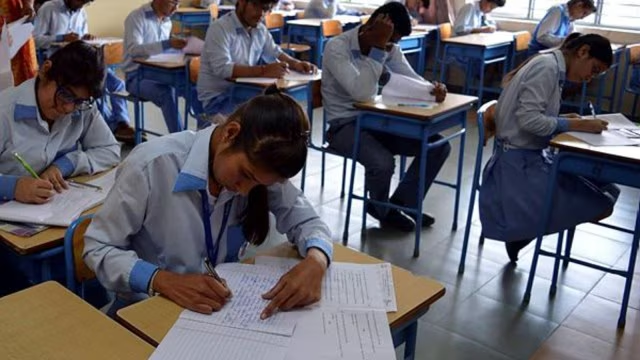
In a move aimed at reducing academic pressure and offering students a second shot within the same academic year, the Central Board of Secondary Education (CBSE) has announced a revised board examination structure for Class 10. Starting from the 2025–26 session, students will appear for two board exams: the first in February and the second in May.
While the February exam will be the ‘main’ board, students who wish to improve their scores in up to three subjects can take the second board exam. Those who fail in one or two subjects may also attempt the May exam under the compartment category. However, those who miss three or more subjects will be marked ‘Essential Repeat’ and have to retake the exam the following year.
Importantly, this is not a semester system. Students must appear for the first exam. The second is optional—meant only for improvement or compartment cases. No additional or new subjects can be added between the two exams.
CBSE has clarified that the structure, syllabus, and pattern of questions will remain unchanged. The results of the first exam will be declared in April, enabling provisional Class 11 admissions. However, the final marksheets and certificates will be issued only after the second exam results are announced in June.
This dual-exam model was opened for public feedback earlier this year and will initially apply only to Class 10. A similar system for Class 12 is being considered but has not yet been confirmed.
For schools, this change will require rethinking academic calendars, counselling processes, and internal assessments, especially for students who may be at risk of needing a second attempt. The move aligns with CBSE’s broader goals of offering students more flexibility and reducing the high stakes of a single board exam.
Education
Tripura Becomes Third Indian State to Achieve Full Literacy
Published
1 week agoon
June 24, 2025
Tripura has been declared a fully literate state, becoming the third in the country to cross the 95% literacy threshold after Goa and Mizoram.
The announcement was made by Chief Minister Dr. Manik Saha, citing data from the Understanding Lifelong Learning for All in Society (ULLAS) programme — a flagship literacy and life skills initiative aligned with the National Education Policy (NEP) 2020. The declaration marks not just an administrative achievement, but a generational leap in educational access and community participation.
Tripura’s current literacy rate stands at 95.6%, as per the latest Periodic Labour Force Survey, a remarkable rise from 87.22% in the 2011 Census, and a far cry from 20.24% in 1961.
“This is a historic moment for Tripura. From a 20% literacy rate six decades ago to 95.6% today, we have rewritten our narrative,” said Dr. Saha in a public post. “Through the successful implementation of ULLAS, we have ensured that literacy is not limited to signing one’s name, but includes the confidence to participate meaningfully in society.”
ULLAS, launched under the New India Literacy Programme, targets adult learners aged 15 and above who have missed out on formal schooling. It goes beyond basic literacy to include numeracy, digital and financial literacy, legal awareness, and other essential life skills — all aligned with NEP 2020’s commitment to equitable lifelong learning.
The shift from traditional signature-based literacy drives to functional literacy has allowed Tripura to reach new learners with practical, future-ready tools. The model also offers a compelling template for other states striving to raise literacy rates beyond conventional benchmarks.
Education
Delhi Schools to Implement Age 6 Rule for Class 1 Admissions from 2026
Published
1 week agoon
June 23, 2025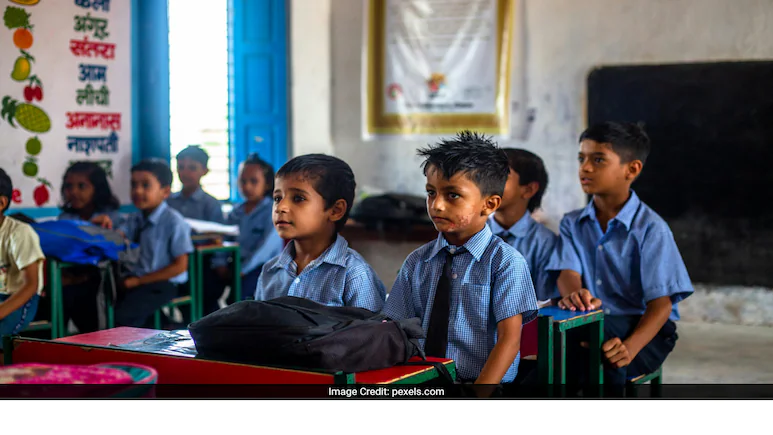
In line with the National Education Policy (NEP) 2020 and the Right to Education Act (RTE) 2009, the Directorate of Education (DoE), Government of NCT of Delhi, has issued a directive mandating that children must be 6 years old to gain admission into Class 1 starting from the academic session 2026–27.
This move aligns Delhi’s education system with the restructured 5+3+3+4 school framework introduced in the NEP 2020. Under the revised structure, the foundational stage will now include three years of pre-primary education before Class 1: Nursery (Bal Vatika/Preschool 1) at age 3, Lower KG (Preschool 2) at age 4, and Upper KG (Preschool 3) at age 5. Class 1 will be open to children only upon completion of 6 years of age.
All Heads of Government, Government-Aided, and Recognized Unaided Private Schools have been instructed to adopt this change beginning in the 2026–27 academic session.
By standardising entry age norms, the move aims to promote uniformity and developmentally appropriate learning, ensuring children enter Grade 1 equipped with foundational skills from three years of early childhood education.
Education
Tripura Adds Sex Education & HIV Awareness to Their Curriculum
Published
2 weeks agoon
June 20, 2025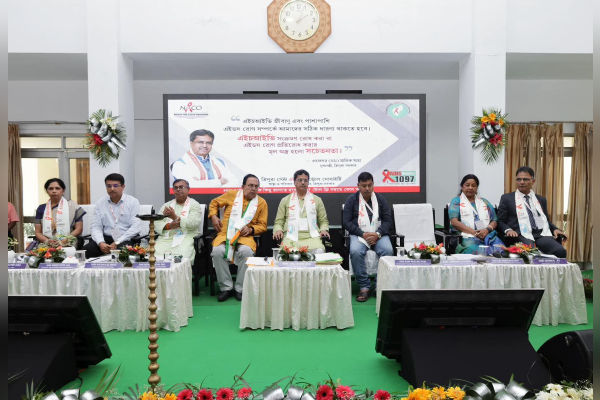
In a progressive step towards comprehensive health education, the Tripura government has announced plans to integrate sex education and HIV/AIDS awareness into its school curriculum, Chief Minister Manik Saha confirmed.
According to officials, the curriculum update aims to equip students with accurate knowledge about sexual health, disease prevention, and safe practices—key factors in curbing the prevalence of HIV/AIDS in the state. With around 5,000 active cases reported by late 2024, including a notable infection rate of 0.33% among adults and over 800 student cases, the move is seen as a timely measure.
The new content will be deployed through age-appropriate lessons, Red Ribbon Club activities, and sensitisation drives led by health and education officials. This initiative builds upon previous efforts, such as school- and college-level awareness programs, the involvement of key stakeholders, and information, education, and communication (IEC) campaigns across rural and urban centers.
Chief Minister Saha emphasised the role of educators and community leaders in delivering accurate information and fostering a supportive environment: “Students from school to college level should be made aware of the dangers of this disease,” he remarked earlier.
The curriculum integration aligns with state-level action under the National AIDS Control Programme (NACP). It resonates with India’s broader public health mandate to move HIV/AIDS education from stigma to mainstream schooling. By addressing misconceptions and promoting prevention early, Tripura hopes to protect its youth and reduce dropout rates among vulnerable groups.
Education
Four Indian Schools Shine on the Global Stage at World’s Best School Prizes 2024
Published
2 weeks agoon
June 20, 2025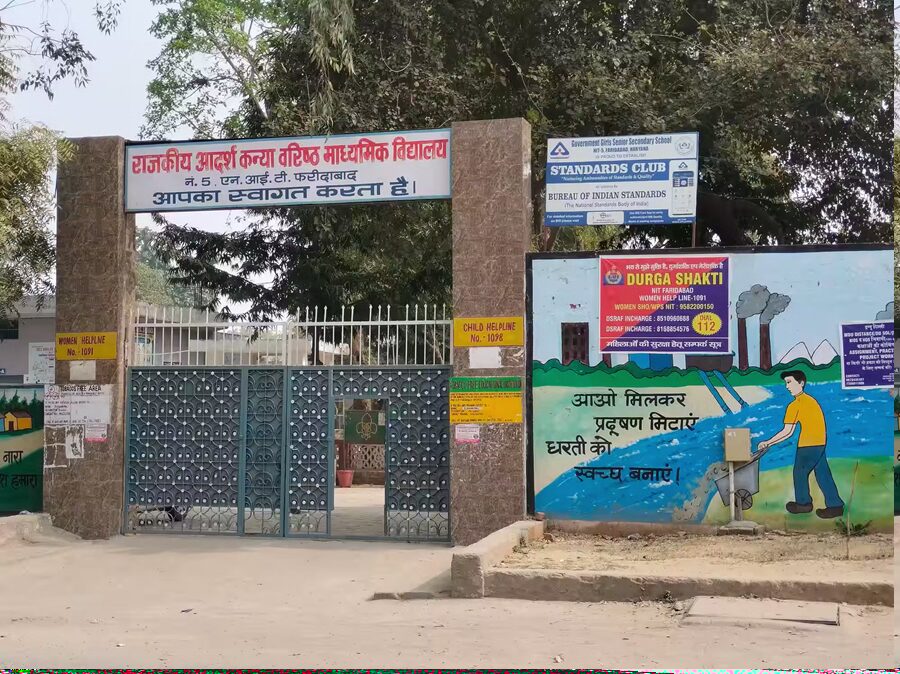
In a proud moment for Indian education, four schools from across the country have been named among the top 10 global finalists in the prestigious World’s Best School Prizes 2024, organised by UK-based T4 Education. These awards honour schools that are pushing the boundaries of innovation, inclusion, and community impact — and this year, India has made its presence felt in four out of five categories.
A Snapshot of India’s Global Finalists
From government to private, rural to urban — the diversity of India’s representation this year is striking.
-
Government Girls Senior Secondary School, NIT 5, Faridabad (Haryana) – Supporting Healthy Lives
A government-run school is redefining what public education can achieve. By interweaving nutrition, mental health, and physical well-being into its core ethos, the school is transforming the lives of at-risk girls, ensuring that no student is left behind. -
Ekya School, JP Nagar, Bengaluru (Karnataka) – Innovation
Recognised for reimagining learning through a design-thinking framework, Ekya encourages student agency, interdisciplinary inquiry, and real-world problem-solving — a blueprint for future-ready schooling. -
ZP School, Jalindar Nagar, near Pune (Maharashtra) – Community Collaboration
A rural government school that has placed local communities at the heart of education. By building trust and ownership at the grassroots, it has created a model of sustainable, community-driven transformation. -
Delhi Public School, Varanasi (Uttar Pradesh) – Environmental Action
Known for its strong environmental initiatives, DPS Varanasi’s students lead from the front — managing waste, conserving energy, and creating a campus-wide culture of sustainability.
These schools are now among 50 global finalists, selected from thousands of applications worldwide. The shortlist highlights institutions not merely chasing academic results but actively shaping well-being, equity, and systemic reform in education.
What Happens Next
All 50 finalist schools are now competing for the Community Choice Award, determined through an open global vote. Winners across each of the five main categories — Supporting Healthy Lives, Environmental Action, Innovation, Community Collaboration, and Overcoming Adversity — will be announced in October 2024.
The celebration will culminate at the World Schools Summit in Abu Dhabi in November, where global education leaders will convene for a high-impact dialogue on best practices and policy influence.
The Broader Picture
Launched in the wake of the COVID-19 pandemic, the World’s Best School Prizes have rapidly emerged as one of the most influential accolades in global education. Powered by T4 Education, a platform that connects over 200,000 educators worldwide, the awards are more than just recognition — they are a launchpad for schools to amplify their voice, scale impact, and drive systems-level change.
For India, the presence of four unique schools among global changemakers is both a celebration and a reminder — that bold ideas, no matter where they are born, can shape the future of learning.
Education
Centre Urges 7 States to Consider Common Board Amid Alarming Student Failure Rates
Published
2 weeks agoon
June 19, 2025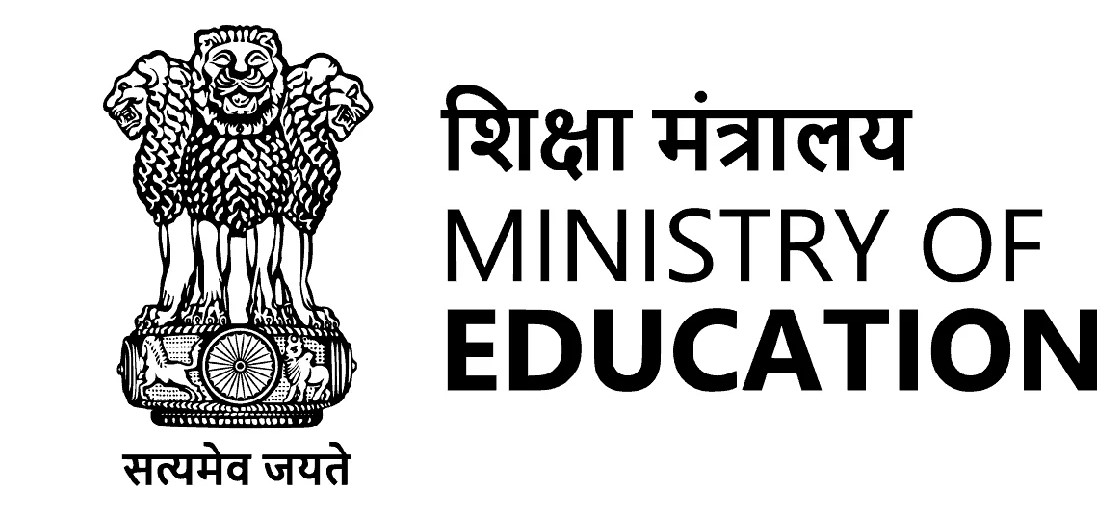
In a significant move aimed at streamlining school assessments and improving learning outcomes, the Ministry of Education has recommended that seven states—Andhra Pradesh, Assam, Kerala, Manipur, Odisha, Telangana, and West Bengal—adopt a common board for Class 10 and 12 examinations.
The recommendation follows a detailed analysis by the Department of School Education, which found that these states accounted for a staggering 66% of student failures across India last academic year. In total, over 22 lakh students failed Class 10, and 20 lakh failed Class 12 nationally in 2024, highlighting persistent challenges in retention and transition to higher education.
“Not having a common board leads to poor academic outcomes,” said School Education Secretary Sanjay Kumar, stressing that standardisation in assessment, curriculum, and evaluation is key to reversing this trend. “A common board is the way forward for ease of schooling,” he added.
India currently has 66 examination boards, including three national-level boards and 63 state-level ones. However, only 33 of these boards cater to 97% of enrolled students. The rest, often covering smaller student populations, contribute disproportionately to inconsistent academic performance.
The report also placed a renewed focus on the National Institute of Open Schooling (NIOS), especially in high-failure states. While NIOS currently has a stronger presence in Delhi, Rajasthan, and Haryana, the ministry wants to see its footprint expand in the recommended states to engage unsuccessful students and prevent dropouts.
However, the report didn’t just stop at structural issues. It shed light on regional and linguistic disparities in student performance. For instance, students taking exams in Odia and Malayalam consistently outperformed peers writing in Kannada, Telugu, and Assamese. Interestingly, Kerala, with its integrated board system, recorded an astounding pass rate of 99.96%. Odisha and Manipur also showed success rates above 97%.
Meanwhile, Navodaya Vidyalayas (NVs) and Kendriya Vidyalayas (KVs) continue to set benchmarks in academic excellence. The report found that 72% of NV students cleared NEET-UG, with strong showings also reported in engineering entrance exams. NVs, which cater primarily to rural talent, seem to be reinforcing the case for equity in access to quality education.
As conversations around NEP 2020 continue to push for holistic, inclusive, and standardised learning, the Centre’s recommendation serves as both a wake-up call and a window of opportunity. With the right reforms, these states could be on the brink of a transformative shift in student success.
Newsletter

Indian Astronaut Shubhanshu Shukla to Connect with School Students Live from Space

Are 4-Year Degrees Dead? Nikhil Kamath and the WEF Say Lifelong Learning Is Here to Stay

UGC Cracks Down on 89 Institutes Over Anti-Ragging Failures

Government Doubles Down on Coaching Centres: New Panel Signals Stronger Regulation Ahead

CBSE To Conduct Board Exams Twice for Class 10 from 2026

How to Win Back Wandering Minds: Post-Summer Edition
Tripura Becomes Third Indian State to Achieve Full Literacy

Assam Brings Sign Language to Senior Secondary Classrooms in Landmark Move

Delhi Schools to Implement Age 6 Rule for Class 1 Admissions from 2026

Tripura Adds Sex Education & HIV Awareness to Their Curriculum

Four Indian Schools Shine on the Global Stage at World’s Best School Prizes 2024

Centre Urges 7 States to Consider Common Board Amid Alarming Student Failure Rates

IIT Delhi Leads India in the QS Rankings 2026; MIT Tops Globally

Chandigarh, Punjab Lead in School Education Rankings; Meghalaya Trails Behind

Maharashtra Revises Policy on Third Language in Schools, Hindi No Longer Mandatory

From Academics to Empathy: Redefining Academic Success

India Sends 20 Students to Japan Under Sakura Science Programme 2025

Delhi Schools to Observe June as Anti-Malaria Month, Says DoE

Telangana Govt Ties Up With 6 NGOs to Revolutionise Teaching in Govt Schools

History, Identity, and Pride: Books That Make Sense of Being You

Delhi Government Clears Ordinance to Regulate Private School Fees After Protests

Of Formulas and Frames: Why India Must Stop Dividing Science and Art

43-Day Hunger Strike Ends as Govt Backs Teachers’ Demands

OpenAI Academy Launches in India to Democratise AI Education for Students, Teachers, and Startups

World Environment Day: Why Your School’s Environmental Education Needs a Cleanup

Is Your School Following These Mandatory CBSE Committees?

CBSE’s ‘Sugar Boards’ Initiative: Tackling the Sweet Crisis in Indian Schools

“Be the Change in a Changing World”: Anita Karwal and Anju Chazot Reflect on NEP 2020
CBSE Warns Dummy School Students May Be Barred from Board Exams

Maharashtra to Regulate Pre-Primary Education with New Law Aligned to NEP 2020

China Embarks on Ambitious AI-Driven Education Reform to Build a ‘Strong Education Nation’ by 2035

MAHAJYOTI’s Book Distribution Scheme to Empower 7,000 OBC Students Preparing for JEE/NEET & MHT-CET

John King’s Book ‘Teacher By Teacher’: A Global Tribute to the Transformative Power of Education

‘Baalpan ki Kavita’ Initiative Launched to Restore Indian Rhymes for Young Learners

Rewriting Ambedkar: Why Students Must Know the Man Beyond the Constitution

CBSE Introduces Mandatory Bridge Course for Classes 6 to 12 in Chhattisgarh Under NEP 2020

CBSE Mandates 50-Hour Annual Training for Teachers, Declares STEM as 2025 Theme

India Bids Farewell to NEP Architect Dr K. Kasturirangan

Pradhan Mantri Rashtriya Bal Puraskar 2025: Nominations Now Open for India’s Young Achievers

Banu Mushtaq’s International Booker Win Is a Wake-Up Call for Indian Schools to Reclaim Literature

NCERT Class 7 Textbooks Updated: Mughals Removed, Focus on Indian Ethos and Pilgrimage

Delhi Government Cracks Down on Dummy Schooling; Over 600 Schools Inspected, 10 Issued Notices

Delhi Approves Landmark Bill to Regulate School Fees Across 1,677 Institutions

The Ethics of AI Art in Education & Nostalgia: The Ghibli Effect

Operation Sindoor and Operation Abhyaas: Navigating School Safety and Student Well-being Amid Rising Tensions
CBSE Revises Class 10, 12 Curriculum: Biannual Exams, New Subjects and Flexible Passing Criteria Introduced

Harvard Stands Its Ground: Harvard Faces ₹18,400 Crore Funding Freeze After Rejecting Trump Administration’s Demands

CUET-UG 2025 Likely to be Postponed, Fresh Dates Expected Soon

Aalamaram 2025: Where Indian Educators Came Together to Grow, Reflect, and Lead

Trump Signs Executive Order to Promote AI Integration in U.S. K-12 Education
SGEF2023 | Special Address by Rama Datt, Trustee, Maharaja Sawai Man Singh II Trust, Jaipur

ScooNews | After Movie | ScooNews Global Educators Fest 2023

Aftermovie | NIES2 UP Chapter | 21 Jan 2023

WEBINAR | Gamification in Education: How Digital Badges Can Boost Student Motivation and Engagement

ScooNews | WEBINAR| Importance of Physical Activity for Children at School | Plaeto

SCOONEWS | WEBINAR | WHY DIGITIZING YOUR SCHOOL IS A MUST | TEACHMINT

Keynote Address | Lakshyaraj Singh Mewar

Anurag Tripathi, Secretary, CBSE at SGEF2022

How schools can nurture every student’s genius

Aftermovie | SGEF2022 | Jaipur

Li Andersson | Minister of Education | Finland

Anurag Tripathi, Secretary, Central Board of Secondary Education (CBSE) discusses NEP2020

ScooNews | Early Ed Asia 2019 | Aftermovie
#PodarECEconf : Pursuing quality ECE

#CBSE Class XII #Results #Highlights

The interesting story of India’s educational system | Adhitya Iyer

A young scientist’s quest for clean water

The Danger of Silence: Clint Smith

National Digital Library of India is an initiative by HRD Ministry

Remembering Kalpana Chawla on her birthday!

Message from Sadhguru for Students!
Message from Sadhguru for Students!

The Untapped Genius That Could Change Science for the Better

Eddy Zhong: How school makes kids less intelligent TEDxYouth@Beacon

#TEDxCanberra : What if every child had access to music education…
Trending
-
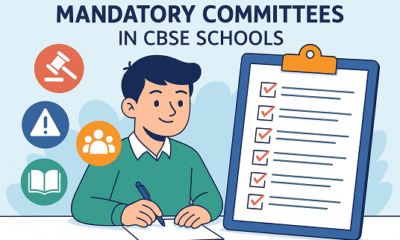
 Education3 months ago
Education3 months agoIs Your School Following These Mandatory CBSE Committees?
-

 Education1 month ago
Education1 month agoCBSE’s ‘Sugar Boards’ Initiative: Tackling the Sweet Crisis in Indian Schools
-
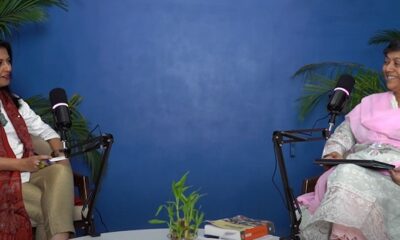
 Education3 months ago
Education3 months ago“Be the Change in a Changing World”: Anita Karwal and Anju Chazot Reflect on NEP 2020
-
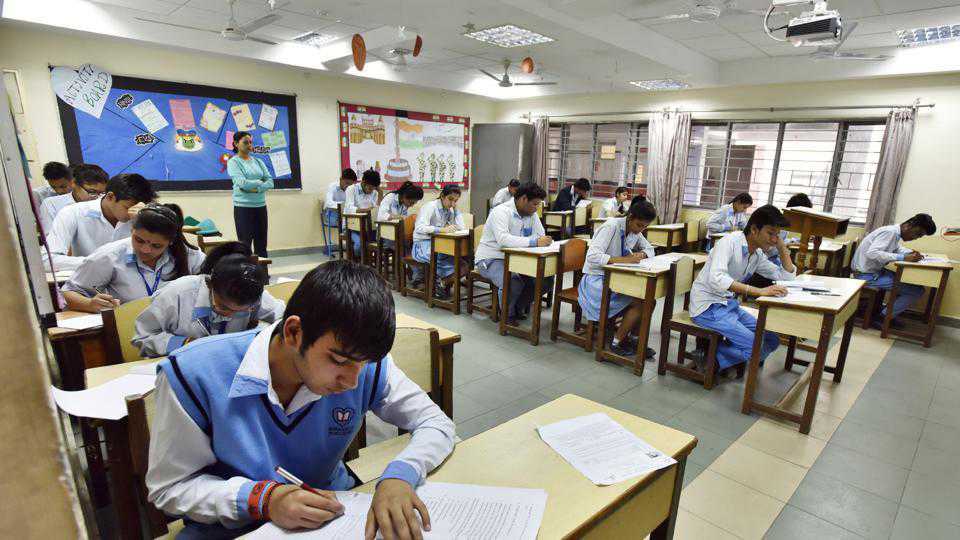
 News3 months ago
News3 months agoCBSE Warns Dummy School Students May Be Barred from Board Exams
-
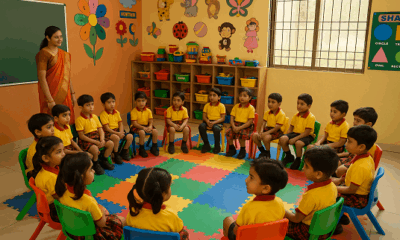
 Education2 months ago
Education2 months agoMaharashtra to Regulate Pre-Primary Education with New Law Aligned to NEP 2020
-
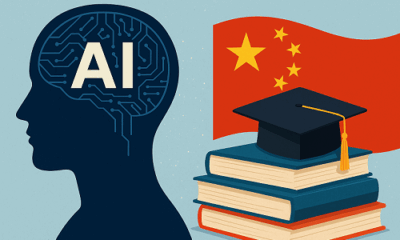
 Education3 months ago
Education3 months agoChina Embarks on Ambitious AI-Driven Education Reform to Build a ‘Strong Education Nation’ by 2035
-

 Education3 months ago
Education3 months agoMAHAJYOTI’s Book Distribution Scheme to Empower 7,000 OBC Students Preparing for JEE/NEET & MHT-CET
-
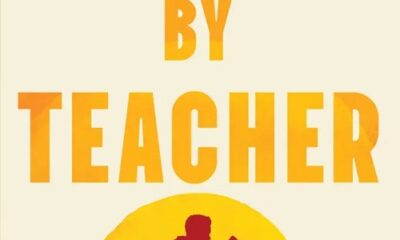
 Education2 months ago
Education2 months agoJohn King’s Book ‘Teacher By Teacher’: A Global Tribute to the Transformative Power of Education
-
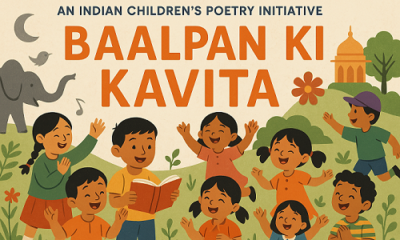
 Education3 months ago
Education3 months ago‘Baalpan ki Kavita’ Initiative Launched to Restore Indian Rhymes for Young Learners
-
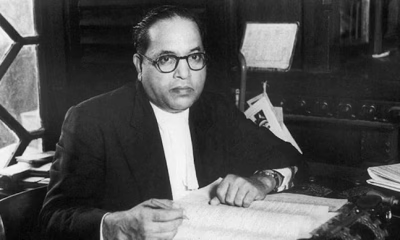
 Education3 months ago
Education3 months agoRewriting Ambedkar: Why Students Must Know the Man Beyond the Constitution




